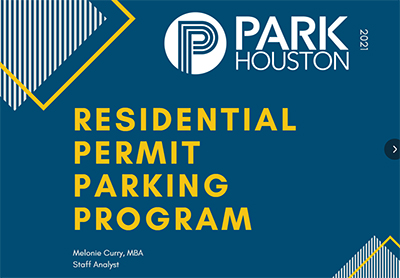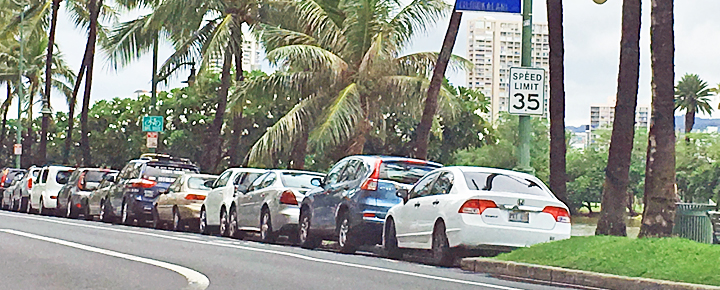Idaho’s Parking Permit Puzzle: Navigating the Residential Permit Maze

Living in a bustling city, you’ve probably experienced the frustration of circling for ages, desperately searching for a parking spot. And if you’re in Idaho, you might have stumbled upon the world of residential parking permits.
These permits, designed to ensure residents have a place to park near their homes, can be a lifesaver… or a bureaucratic headache, depending on the city and your situation.
Related Articles: Idaho’s Parking Permit Puzzle: Navigating the Residential Permit Maze
- Park Smart, Fly Easy: Your Guide To Pocatello Airport Parking
- Parking In Colorado Springs: A Guide For Navigating The City’s Concrete Jungle
- Florida Parking: Don’t Get Lost In The Maze!
- Navigating The Arizona Parking Maze: A Guide To Public Parking Areas
- Rehoboth Beach Parking: Don’t Get Caught In A Traffic Jam (or A Parking Ticket!)
This article breaks down the ins and outs of residential parking permits in Idaho, aiming to shed light on the process, the rules, and the potential pitfalls.
So, buckle up, grab a cup of coffee (or a stiff drink if you’re feeling overwhelmed), and let’s dive into the world of Idaho’s residential parking permits.
The Need for Parking Permits: A Tale of Two Cities
Idaho, with its diverse landscape and urban centers, faces a range of parking challenges.
Cities like Boise, with its booming population and limited parking, have implemented strict residential permit programs. Others, like Coeur d’Alene, may have more relaxed regulations or no permits at all.
The driving force behind these programs is simple: to give residents a fighting chance to park near their homes. Imagine coming home after a long day only to find every street crammed with cars, leaving you circling for what feels like eternity. This is the reality for many residents in Idaho’s urban areas, and the permit system is designed to ease this frustration.
The Permit Process: A Navigational Guide
Getting a residential parking permit in Idaho can be a surprisingly complex process, varying from city to city. Here’s a general outline, but remember, you’ll need to check your specific city’s website or contact their transportation department for the most accurate information.

1. Eligibility: Who Gets a Permit?
- Proof of Residency: You’ll need to prove you actually live in the area. This usually involves showing a driver’s license, utility bill, or lease agreement with your address.
- Vehicle Registration: You’ll need to register your vehicle with the city, providing information about your car’s make, model, and license plate.
- Permit Zones: Cities often divide their neighborhoods into permit zones. Make sure your address falls within the zone where you want to park.

2. Application and Fees:
- Online Applications: Many cities have online applications for residential parking permits, making the process convenient.
- Paper Applications: Some cities still require you to fill out paper forms, which you can usually obtain at city hall or online.
- Fees: Permit fees vary by city, but they’re usually quite affordable, ranging from a few dollars to a couple of dozen.

3. Permit Types:
- Standard Permits: These are the most common type, allowing you to park on the street within your designated permit zone.
- Temporary Permits: These are often issued for short-term situations, like visitors staying with you or while you’re waiting for your permanent permit.
- Visitor Permits: Some cities offer visitor permits, allowing non-residents to park in your permit zone for a limited time.
4. Permit Duration:
- Yearly Permits: These are the most common, lasting for a full year.
- Short-Term Permits: Some cities offer permits for shorter durations, like three months or six months.
The Rules of the Road: Understanding the Restrictions
Now that you’ve got your permit, it’s time to understand the rules of the game.
- Designated Parking Zones: Your permit only allows you to park within your designated zone. Don’t even think about parking outside your zone, or you’ll be facing a hefty fine.
- Time Limits: Some cities have time limits for parking within your permit zone, especially during peak hours. Make sure you’re aware of these limits to avoid getting a ticket.
- Permit Display: You’ll need to display your permit prominently on your vehicle’s dashboard. Make sure it’s visible and not hidden under clutter.
- Vehicle Restrictions: Some cities may restrict the types of vehicles eligible for residential parking permits. For instance, you might not be able to get a permit for a commercial vehicle or a recreational vehicle.
The Consequences of Breaking the Rules: Parking Tickets and Fines
Don’t underestimate the power of parking enforcement in Idaho. They’re like ninjas, lurking in the shadows, waiting to catch you slipping up.
- Ticket Fines: Parking tickets for violating residential permit rules can range from a few dollars to a hundred dollars or more.
- Boot or Tow: In some cases, you might find your car booted or towed if you’re a repeat offender or your violations are egregious. This can be a major headache and a costly experience.
Beyond the Basics: Navigating the Grey Areas
While the permit process itself might seem straightforward, there are some grey areas that can leave you scratching your head.
- Guest Parking: What about your guests who come to visit? Some cities offer visitor permits, while others allow you to park your guest’s car in your permit zone for a limited time.
- Moving Day Parking: If you’re moving, you’ll need to contact the city to arrange for temporary parking permits for the moving truck.
- Construction Parking: If you’re undergoing major construction at your home, you might need to apply for special parking permits.
The Future of Parking: A Look Ahead
As cities continue to grow and parking becomes more scarce, the demand for residential permits is likely to increase. Here are some trends to watch:
- Technology-Driven Solutions: Cities are exploring technology-based solutions, like mobile apps and online platforms, to make the permit process more efficient and user-friendly.
- Shared Parking Programs: Some cities are experimenting with shared parking programs, allowing residents to rent out their unused parking spaces to others.
- Smart Parking Technology: Cities are also exploring smart parking technology, using sensors and data analytics to optimize parking availability and reduce congestion.
FAQ: Your Burning Parking Permit Questions Answered
Q: What if I don’t have a car? Do I still need a permit?
A: It depends on the city. Some cities require all residents to have a parking permit, even if they don’t own a car. Others might offer a "no car" permit or exempt you from the permit requirement.
Q: What if I’m only renting my apartment? Can I still get a permit?
A: Yes, you can usually get a permit as long as you can provide proof of residency, such as a lease agreement.
Q: What if I have multiple cars? Do I need a permit for each one?
A: Yes, you’ll need a separate permit for each vehicle registered to your address.
Q: What if I lose my permit? Can I get a replacement?
A: Yes, you can usually get a replacement permit by contacting your city’s transportation department. You may have to pay a small fee for the replacement.
Q: What if I’m visiting someone who lives in a permit zone? Can I park there?
A: It depends on the city’s rules. Some cities allow visitors to park in permit zones for a limited time, while others require them to obtain a visitor permit.
Q: What if I’m a student living off-campus? Can I get a permit?
A: It depends on the city’s rules. Some cities offer student permits, while others may have restrictions based on your residency status.
Navigating the Permit Maze: A Final Word
Residential parking permits in Idaho can be a confusing and sometimes frustrating experience. But with a little research and a bit of patience, you can find your way through the maze and secure your parking spot. Remember, the key is to be informed, follow the rules, and be prepared for the unexpected.
So, keep your eyes peeled for parking enforcement, and may your parking journey be smooth and stress-free!

Closure
Thus, we hope this article has provided valuable insights into Idaho’s Parking Permit Puzzle: Navigating the Residential Permit Maze. We hope you find this article informative and beneficial. See you in our next article!


